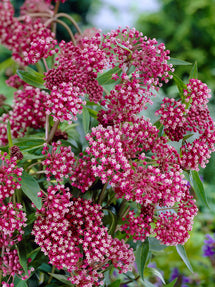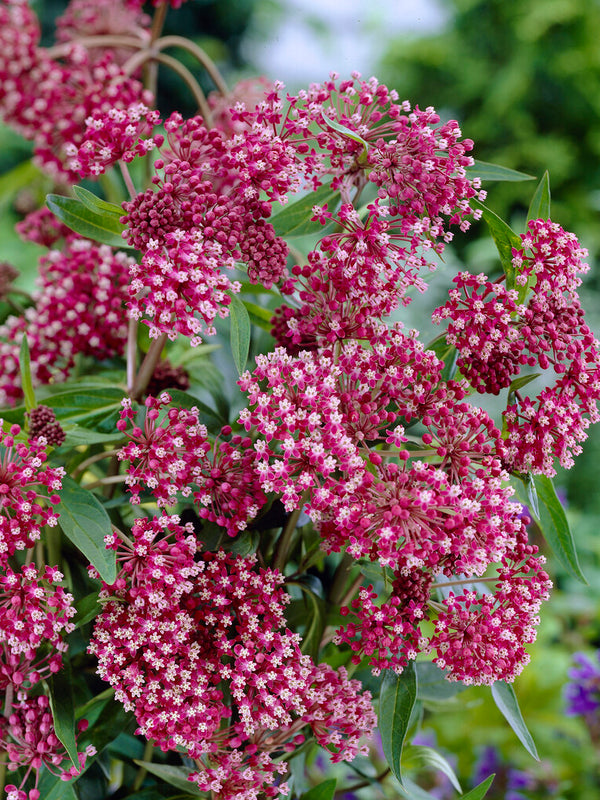Asclepias (Swamp Milkweed)
Asclepias, commonly known as Swamp Milkweed, is a group of plants well-known for their importance to monarch butterflies as a food source. Asclepias incarnata, specifically, is a species adapted to wet environments, hence the common name "Swamp Milkweed."
Showing 1 - 1 in 1 items
Asclepias (Swamp Milkweed)
Asclepias, commonly known as Swamp Milkweed, is a group of plants well-known for their importance to monarch butterflies as a food source. Asclepias incarnata, specifically, is a species adapted to wet environments, hence the common name "Swamp Milkweed." Characteristics of Asclepias Incarnata: Habitat: Prefers wet, swampy areas, such as near ponds or streams, but can also thrive in well-watered garden settings. Flowers: The plant produces clusters of small, fragrant, pink to mauve (sometimes white) flowers, typically blooming in mid to late summer. Foliage: It has narrow, lance-shaped leaves that are light to medium green. Height: It can grow up to 3 to 4 feet tall. Ecological Importance: Monarch Butterflies: Asclepias incarnata is particularly known for its role as a host plant for monarch butterflies. The plant provides essential nutrients to monarch caterpillars and also offers nectar to the adult butterflies. Attracting Wildlife: Besides monarchs, it attracts a variety of pollinators, including bees and hummingbirds. Cultivation: Soil and Water: Swamp Milkweed prefers moist, rich soils but is quite adaptable and can tolerate average garden soil if it's kept adequately watered. Sunlight: It thrives in full sun to partial shade. Maintenance: This plant is relatively low-maintenance. It's important to avoid using pesticides on or near the plant, as these can harm the monarch caterpillars. Uses in Gardens: Rain Gardens: Ideal for rain gardens or wet areas in the landscape. Wildlife Gardens: Its value to butterflies and other pollinators makes it a great choice for wildlife or naturalized gardens. Note of Caution: The sap of Asclepias species contains cardiac glycosides and is toxic if ingested in large quantities. It's advisable to handle with care, especially around children and pets. Swamp Milkweed not only adds beauty to garden spaces with its distinctive flowers and foliage but also plays a crucial role in supporting biodiversity, particularly the iconic monarch butterfly.

